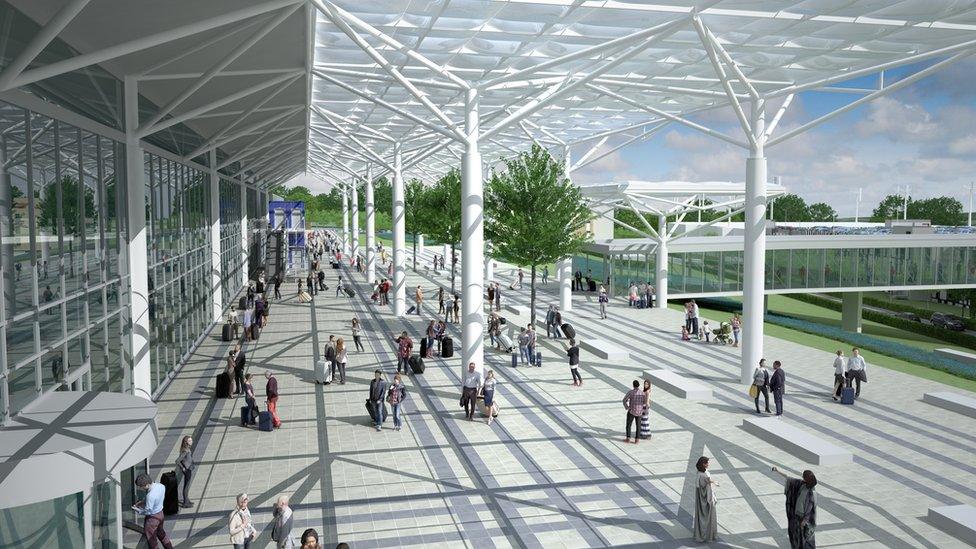Bristol Airport expansion granted at High Court
- Published
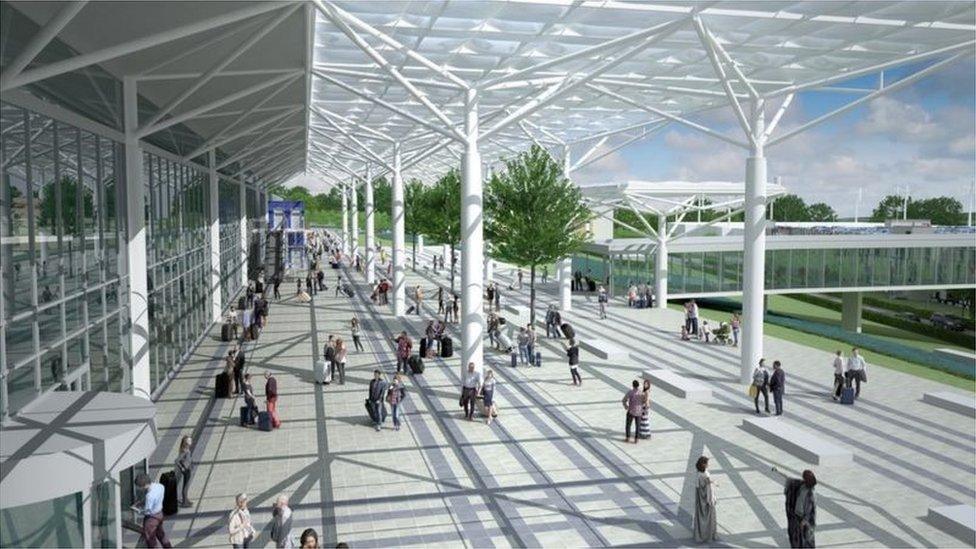
The airport could increase its capacity from ten million to 12 million passengers per year
The expansion of Bristol Airport will be allowed to go ahead, the High Court has ruled.
Campaigners have been appealing against the Planning Inspectorate's decision to allow the expansion.
North Somerset Council rejected the expansion in 2020 on environmental grounds but that decision was later overruled by the government agency.
Expansion would see the airport increase its capacity from ten million to 12 million passengers per year.
Campaigners have said they are "extremely disappointed" after Tuesday's hearing result but have said they are already planning on challenging the ruling.
A spokesperson for the airport said: "Bristol Airport welcomes the High Court Judge's decision to dismiss the claim and uphold the planning permission to increase Bristol Airport's capacity".
They added the decision will create 5,000 new jobs and will see millions of pounds invested in improving customer experience.
The hearing which has been held at Bristol's Civil Justice Centre has been examining whether the Planning Inspectorate acted correctly when granting planning permission last year.
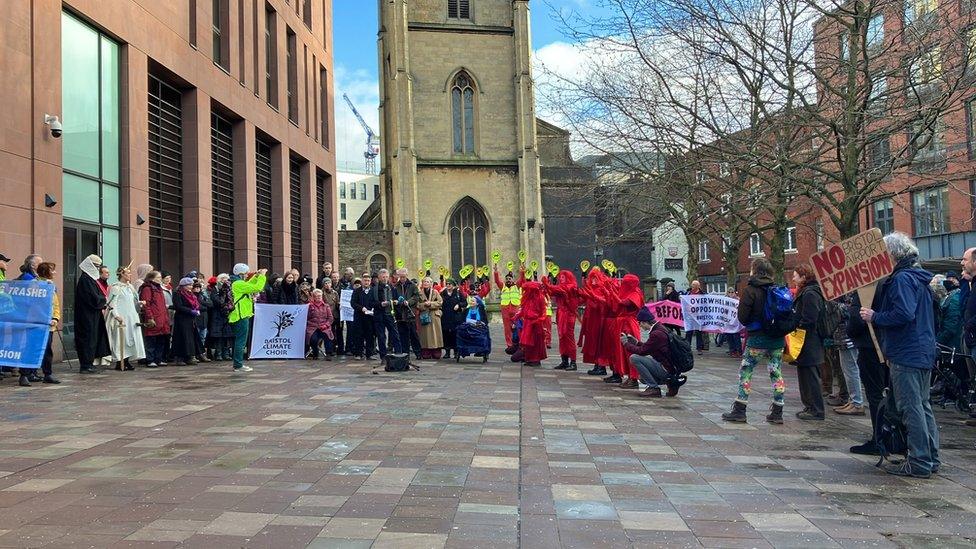
Campaigners outside court in Bristol
The appeal has been mounted by the Bristol Airport Action Network (BAAN), which has been arguing planning inspectors were wrong to ignore the impact a bigger airport would have on climate change.
But the inspectorate, which is an agency of the Department for Levelling Up, Housing and Communities, says a local planning decision cannot overturn national government policy.
In his decision Lord Justice Lane said expanding the airport would impact the environment but that the decision is for central government not local.
Stephen Clarke from BAAN said: "This is not going to be the end, we are hoping and planning to appeal this decision because it simply cannot be allowed to stand."
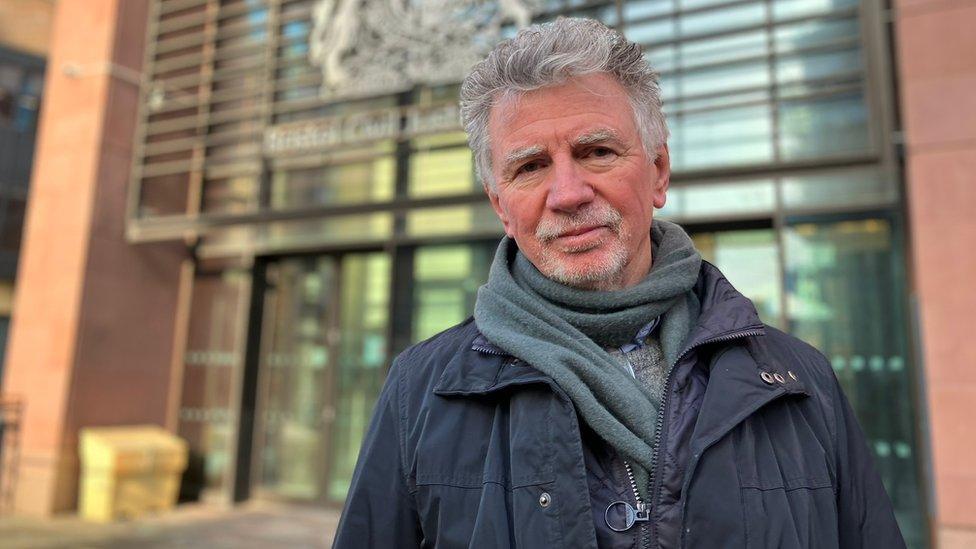
Stephen Clarke, Bristol Airport Action Network campaigner
He continued: "Its got national significance for all the airports coming up behind us and we think the decision is wrong - we think the interpretation of the law is wrong.
"We won't stand by and let this happen."
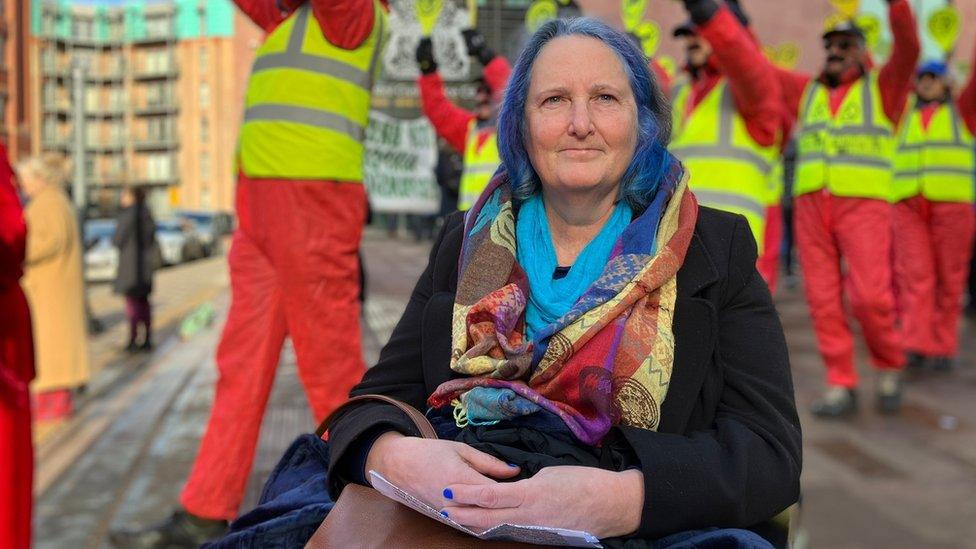
Jackie Head, Bristol Airport Action Network campaigner
Jackie Head, a member of BAAN from Chew Valley said: "The decision is devastating and will take a while to process but one thing that is clear is this, if this is right in law then our laws are wrong.
"What use are these laws if they cannot protect future life on this planet? I know we will regroup and fight on.
"We hope that the world will catch up with the reality that expanding airports is madness in a climate emergency."
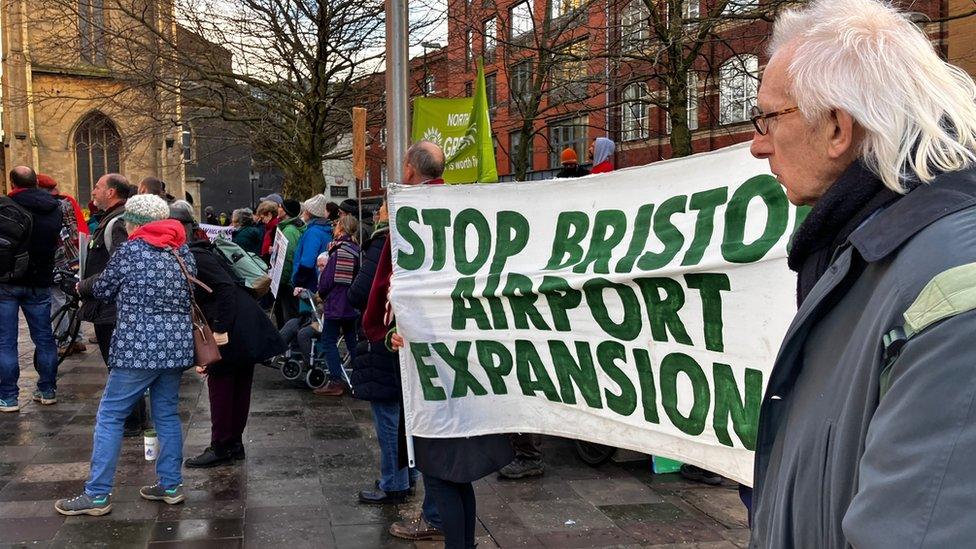
A crowd gathered outside the High Court in Bristol

Analysis by BBC West Political Editor Paul Barltrop
Bristol is not the only British airport looking to expand; half a dozen others have similar ambitions, so they are among many who have watched this five-year planning battle with interest.
The bottom line is that the inspectors followed the planning rules as laid down by the government.
In its Jet Zero strategy announced in July 2022, ministers pin their hopes on zero or low-emission flying, and state "we will continue to support sustainable airport growth".
But their own expert advisers see it differently.
The Climate Change Committee say that holds "significant risks", and recommend that "there should be no net expansion of airport capacity".
The campaigning against airport expansions will continue; but what may matter more ultimately is the cutting-edge research by aerospace firms to develop planes that do less damage to the planet.

How did we get here?
Plans to expand Bristol Airport were first unveiled four years ago, airport bosses wanted to be able to run additional flights during the peak summer season and said they would create thousands of jobs.
Parish councils have raised concerns, saying the local roads could not cope with any increase in traffic.
North Somerset Council voted to reject the plans in 2020 on environmental grounds.
Neighbouring Bristol City Council, Bath and North East Somerset Council and the West of England Combined Authority also opposed the plans.
The expansion was even mentioned in a speech by climate activist Greta Thunberg during her visit to Bristol in 2020.
Bristol Airport appealed the council judgement with North Somerset Council and then the government, which overruled the council after a three month enquiry - a decision that was criticised by a number of local officials and MPs, including Liam Fox and Wera Hobhouse.
Campaigners opposed to the expansion then took the matter to the High Court.
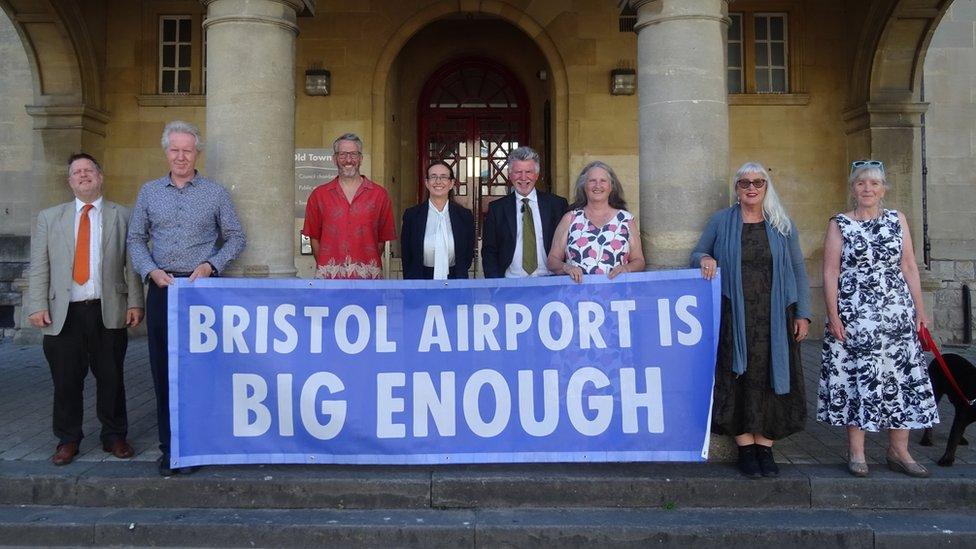
Bristol Airport Action Network Campaigners went to the High Court to appeal against the expansion of Bristol Airport
Why are people opposed to the expansion?
Bristol Airport Action Network (BAAN) believe the expansion will be damaging for local people and the environment, citing a rise in road traffic, increased noise and air pollution and an "inevitable rise in carbon emissions".
The group used crowd funding to raise money to pay for legal costs to support its appeal.
Tarisha Finnegan-Clarke, from BAAN's coordinating committee, said the expansion was "not wanted, nor is it needed".
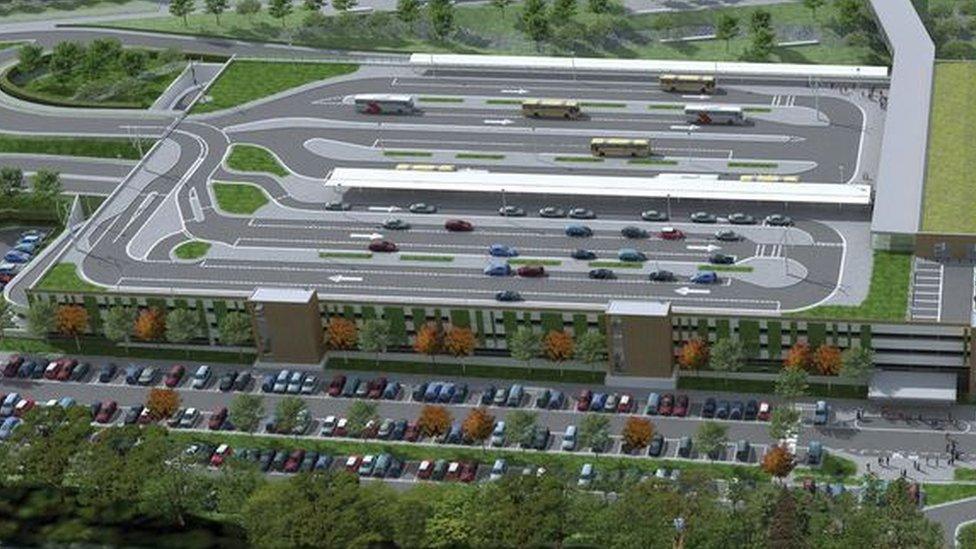
Bristol Airport's plans include thousands more parking spaces and a new transport interchange
What do Bristol Airport argue?
Bristol Airport said the expansion would stop millions of people from the region driving to London airports and create jobs in the expanded airport, boosting the economy.
Simon Earles, corporate affairs director at Bristol Airport said: "We've set a target to be net zero for our own operations by 2030.
"That will involve a new generation of aircraft and the South West has got a unique role to deliver that technology but in the meantime we're working with our airlines to get the cleanest, most modest kind of aircrafts here."
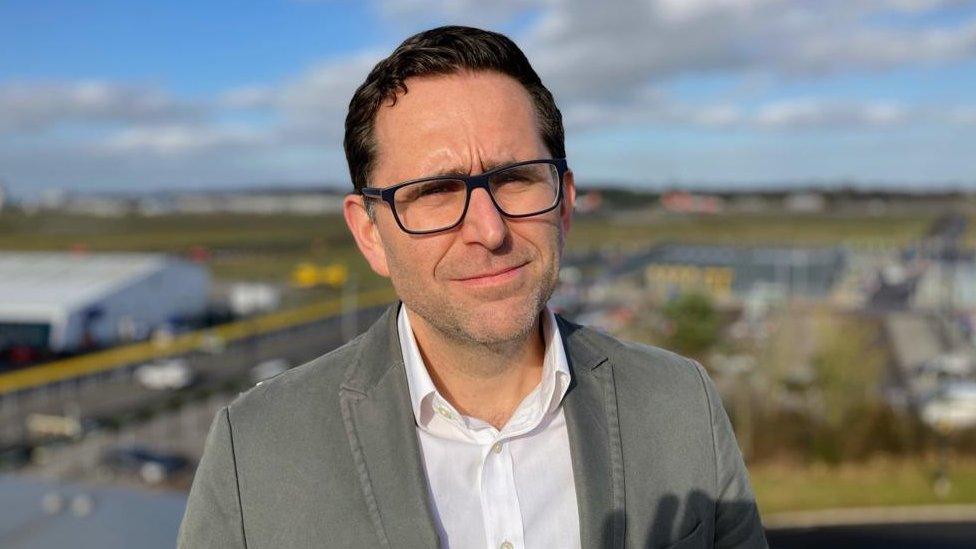
Simon Earles said Bristol Airport will use cleaner aircrafts to achieve net zero by 2030

Follow BBC West on Facebook, external, Twitter, external and Instagram, external. Send your story ideas to: bristol@bbc.co.uk , external
Related topics
- Published18 November 2022
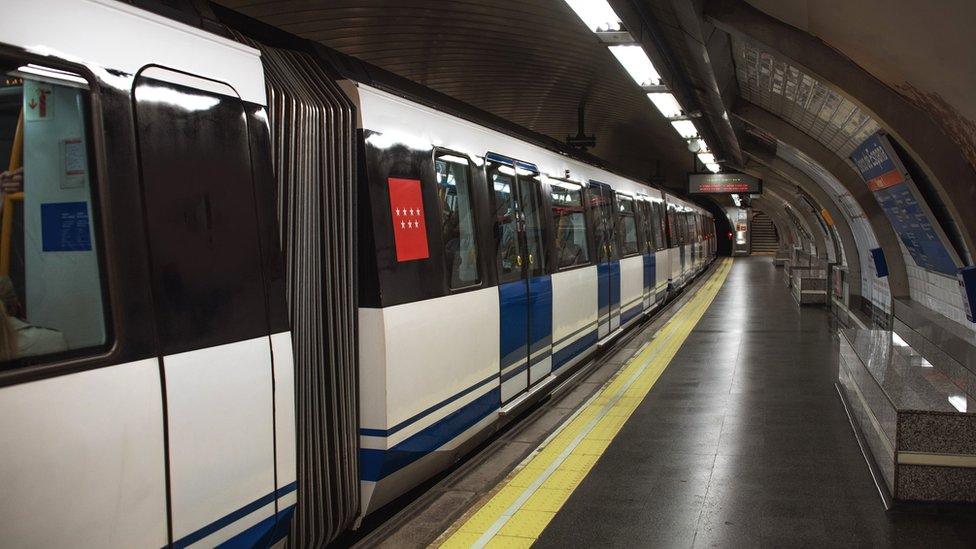
- Published15 March 2022

- Published2 February 2022

- Published3 February 2022
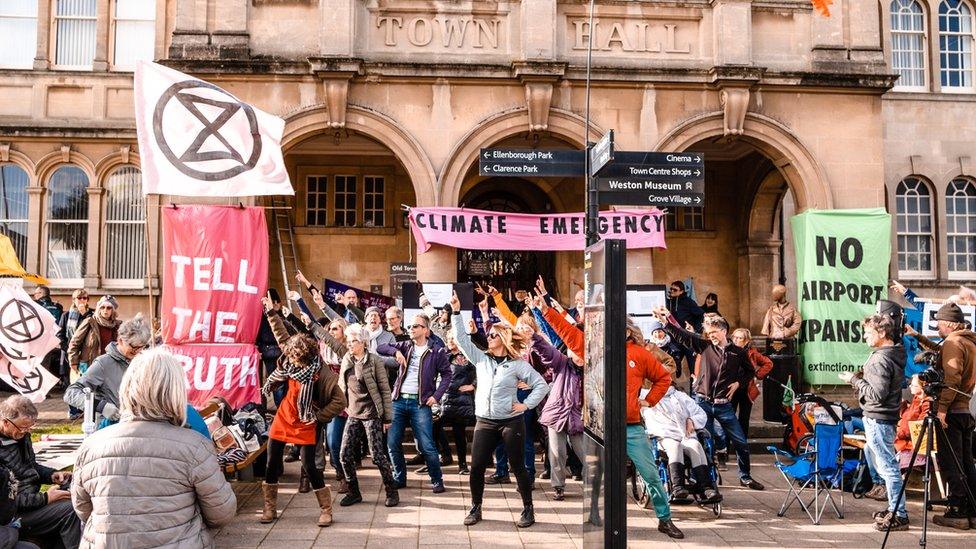
- Published20 July 2021
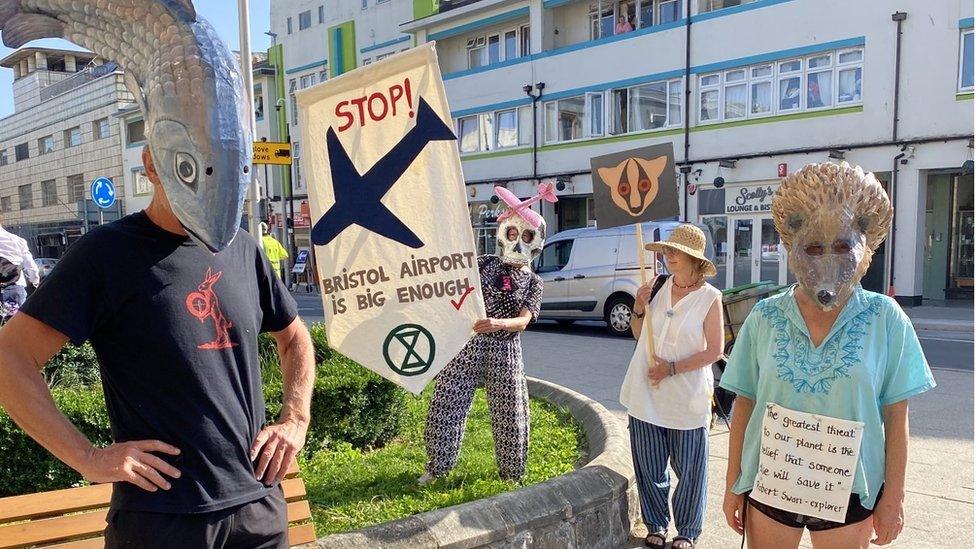
- Published28 February 2020
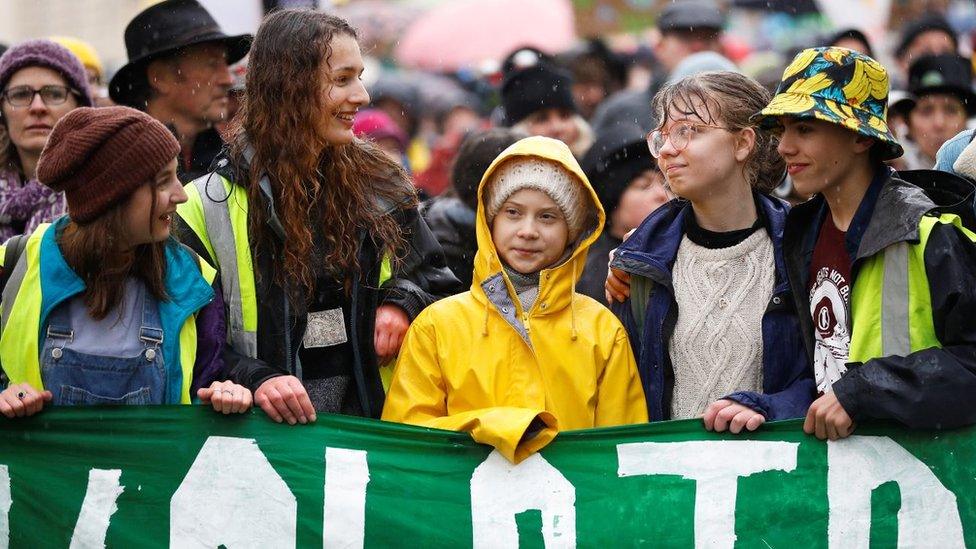
- Published10 February 2020
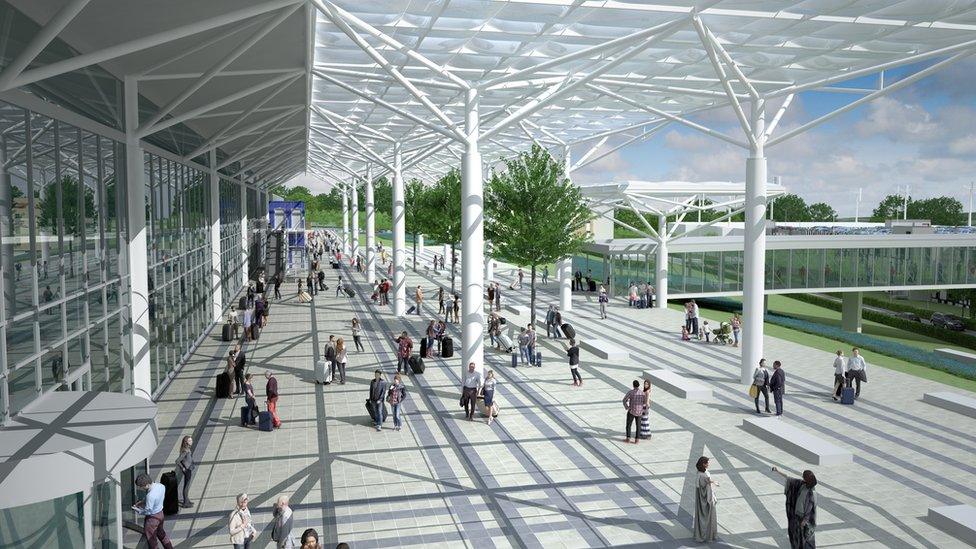
- Published19 December 2018
